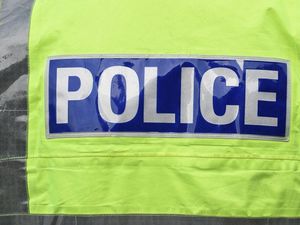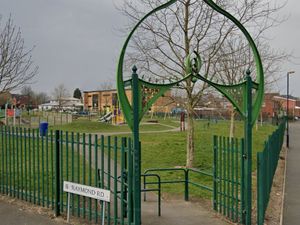West Midlands Police made thousands of arrests involving domestic abuse during lockdown
Almost 3,000 arrests were made for domestic abuse-related crimes in West Midlands during the first coronavirus lockdown, new figures reveal.

With a fifth of all crime nationally during lockdown involving domestic abuse, Refuge said the problem is the "biggest social issue" facing women and girls today.
Figures from Her Majesty’s Inspectorate of Constabulary and Fire and Rescue Services show West Midlands Police made 2,974 arrests for domestic abuse-related crimes between April and June, when the toughest national Covid-19 restrictions were imposed.
There were also 223 voluntary attendances at police stations, where a suspect agrees to meet officers at a station as an alternative to being arrested.
Separate figures from the Office for National Statistics suggest domestic abuse crimes were already rising in West Midlands before the pandemic struck.
In the year to March, 15 per cent of all crimes in the area were linked to domestic abuse (40,160) – an increase on the 12 per cent the year before.
Across England and Wales, domestic abuse offences have risen steadily as a proportion of all crimes for the last four years, reaching 15 per cent in 2019-20.
This spiked in April, May and June when roughly a fifth (21 per cent, 20 per cent and 19 per cent) of offences recorded by police were flagged as domestic abuse related.
As restrictions eased, this proportion fell slightly – likely to be due to overall police-recorded crime increasing following the lockdown.
Police forces (excluding Greater Manchester) recorded 198,112 offences between April and June – nine per cent more than the same months in 2019, and 17 per cent more than two years ago.
Refuge said there was a general increase in demand for domestic abuse services at this time, and it continues to see peaks in demand three weeks into the second lockdown.
Lisa King, director of communications and external relations at the charity, said: "It is important to remember that behind all of these statistics are real woman and their experiences.
"These numbers refer to instances of physical violence, rape, sexual assault, emotional and psychological abuse, coercive control, FGM, forced marriage and other forms of gender-based violence.
"Domestic abuse is biggest social issue facing women and girls today, and these statistics show it simply isn't going away."
There was also a small rise (two per cent) in the number of child protection referrals as a result of domestic abuse-related incidents and crimes over the three months compared with the same period in 2019.
There were 56,945 child protection referrals over this time – with 9,973 in West Midlands.
Barnardo’s said families were facing new financial and emotional pressures during the pandemic so while "deeply sad", the figures are not a shock.
Chief Executive Javed Khan said: “Children are the hidden victims of domestic abuse, not just bystanders. Lockdowns have left too many children trapped in unsafe homes, and missing out on vital support.
"In many cases we know that without timely help, children go on to experience further abuse in their own relationships and risk becoming trapped in a life-long cycle of violence."
Safeguarding Minister Victoria Atkins said the Government's Domestic Abuse Bill, currently awaiting its second reading in the House of Lords, will strengthen protections for victims and also ensure perpetrators feel the full force of the law
Deputy Chief Constable Vanessa Jardine said: “We are aware of the increase in crimes of domestic abuse and we know that these figures have increased even higher during the Covid-19 pandemic.
“Safeguarding vulnerable people and bringing perpetrators of domestic abuse remains a priority for us. Domestic abuse accounts for one in five crimes reported to police, with incidents four times higher than burglaries and eight times higher than robberies.
“Just earlier this year we launched an intensive operation to arrest and convict domestic abuse suspects with significant results.
“We accept that outcome rates are lower than we would like to see them, but these are driven by a number of factors including when a victim chooses not to support a prosecution. But we remain victim focussed and we completely understand taking formal police action against a partner or ex-partner is not an easy decision.
“We recognise that in the West Midlands our increase is higher than other forces with a similar demographic and, while we never want to see a rise in any crime type, increases in reporting domestic abuse can indicate people have trust in us to listen, handle their situation sensitively and take action to stop the offending.
“We have specially trained domestic abuse officers who work alongside support groups and charities to help survivors achieve the best outcome for them.
“We have also improved the way we record domestic abuse incidents as part of a national drive for more accurate recording, so that we can better understand the needs of abuse victims and improve our service to them.
“During the Coronavirus pandemic we have not reduced our response to domestic abuse victims. We continue to urge people to seek help. We will be there for you when you need us."





